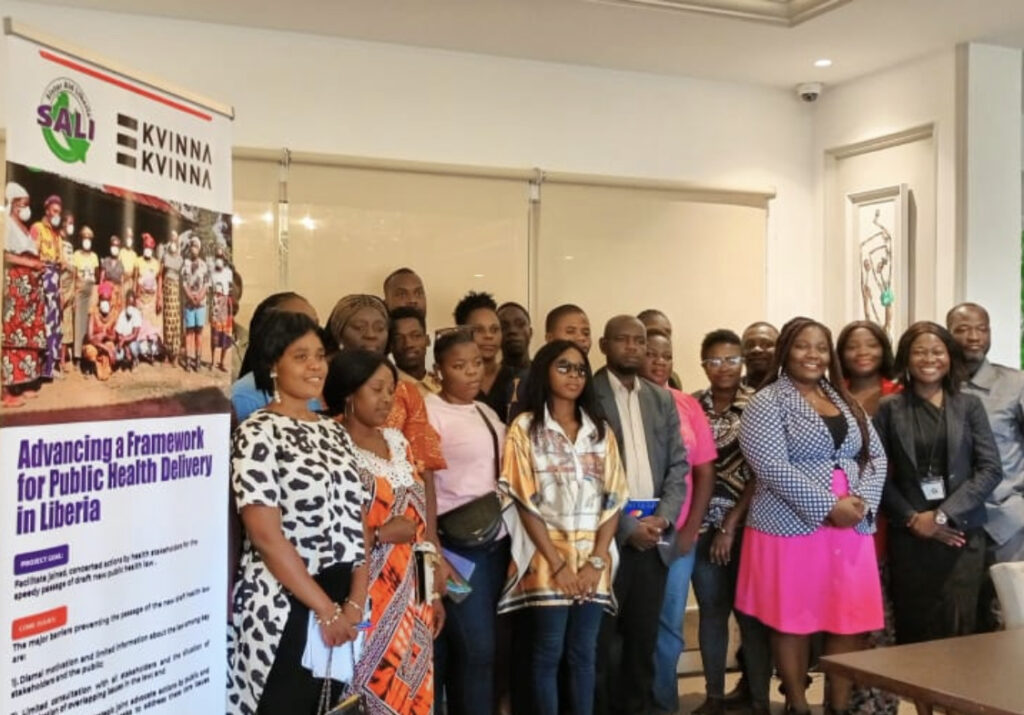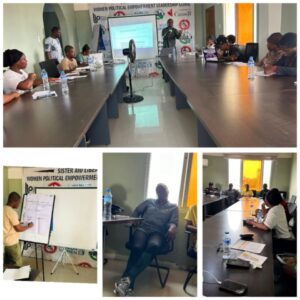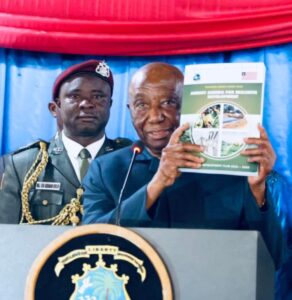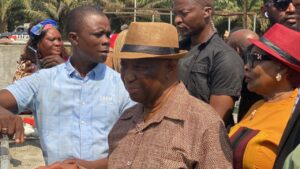‘Sister Aid Liberia’ Holds Dialogue For the Speedy Passage of the Public Health Law

Liberia-March 24, 2023: The public health sector of Liberia is largely in tatters – operationally and legally. The effective functioning of health facilities, organisational structural issues, and a lack of defined legal framework, among other concerns persist.
Recently, Sister AID Liberia (SALI) Inc., a national Non-for-Profit organization held a one-day Public Health Policy Dialogue on the speedy passage of the draft Public Health Law at the Mamba Point Hotel in Monrovia City.
The dialogue is a part of the project titled “Advancing a Framework for Public Health Delivery in Liberia”. This intervention is funded by Kvinna till Kvinna, an international NGO, and implemented by SALI.
The major objective of the dialogue engagement was “to strengthen synergies and arouse diverse stakeholders to present a unified voice to law makers as well as the general public regarding the urgent need to pass the draft public health law”.
A draft public health law has been passed by the Lower House and awaits concurrence by the Senate since 2019. SALI argues, in its Project Factsheet, that the draft public health instrument highly risks further delay if it is not passed into law before the general and presidential elections in October 2023. Broadly, the draft law addresses range of issues, scoping effective and well coordinated public health administration, improved functioning of public health service delivery systems. It also covers structured response to a number of health situations, including women reproductive rights, nutrition, food safety, communicable diseases and outbreaks, as well as mental health, just to name a few.
According to Madam Miatta Garmai Darwolor, Executive Director, SALI, “the Dialogue is the inaugural event which precedes a strategy-making retreat and series of intensive engagements with the Senate Committee on Health to urgently prioritize the passage of the draft law by the Upper House.” She urged participants to identify influencing, windows of opportunities for practical engagements.
An overview of the public health situation in Liberia and a review of the draft law was facilitated by Madam Bento Z. Techainge, Director for family Health division Ministry of Health. The Legal Counsel General, Deputy Minister for Planning Varfee Tulay of the Ministry of Health provided a brief reflection regarding efforts made in drafting the law and mobilising for its passage by the Lower House. Madam Joyce Kilikpo, Executive Director PHIL, facilitated a session on framing a strategic direction for influencing advocacy approaches with an attention to the “4Ps” model (Power, Perception, Potency, and Proximity). Finally, Madam Dorothy Barcolleh, a health professional and representative aspirant for District #3 Margibi facilitated the last session on mapping of initial actions within the frame of the 4Ps model delivered by Joyce.
The format applied by SALI to conduct the Dialogue event consisted of presentations by experts, followed by a dialogue exchange between the presenter and the participants. And a brainstorming collaborative problem-solving session. Participating in the Dialogue event were stakeholders from the Ministry of Health, Liberia Medical and Dental Council, Public Health Institute Liberia, and heads of health facilities such as Cllr. Tomik L. J. Vobah, General Counsel of the Ministry of Health. Additionally, participants were also drawn from the academia (i.e. United Methodist University, University of Liberia, African Methodist University, and Adventist University of West Africa).
As a result of the discussion session aspect of the Dialogue, three major issues were identified and two resolutions reached by participants. These issues are: 1) the public perception regarding abortion rights; 2) backroom politics issues involving power holders; 3) the black box issues regarding structure, position, and qualifications of the heads of County Health Team and large facilities such as hospitals; and 4) splinter, individual advocacy approaches (as opposed to concerted actions) of public health actors for the passage of the draft law. A basic action plan was drafted and the participants were organized into specialised groups to further deconstruct the identified issues and derive practical strategies and actions.



